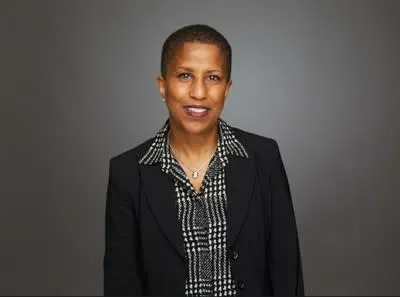By Aysia Morton
May 20, 2022 / 11:13 AM
Financial realities might be a tidal wave when you’re a young adult. You’re given new duties, such as how much money you need to spend, save, or invest. It might be frustrating and difficult to understand. Even searching the internet for financial help can be daunting. It’s easy to get lost in a sea of financial jargon when you have to wade through pages of tough vocabulary phrases.
BET.com spoke with Rodney Griffin, a Certified Financial Advisor at Northwestern Mutual, to provide young adults with 8 practical financial tips for young adults. These tips are easy to understand and can be applied to any lifestyle.
According to Griffin, you should always demand a higher salary when beginning a new job. Don’t be afraid to ask for additional money even if the work initially gives a wage that’s in line with your expectations.
For example, if you tell an employer you want to make 80k a year, and they give you 80k, go back and ask for 90k. Employers may meet you in the middle. Most employers will negotiate with you and you’ll end up making more money than initially planned. Understand your leverage.
2. Have an idea where your money is going
Keep track of your money with a budget. Budgeting is essential to healthy finances. “This doesn’t mean you need to be accountable for every dollar spent, but be aware of your finances as it relates to your goals,” said Griffin.
In the words of Dave Ramsey, a budget is telling your money where to go, instead of wondering where it went. A good budget to try and follow is the 50/20/30 rule, popularized by Senator Elizabeth Warren. The rule states to divvy up your after-tax income, with 50% going to your needs, 30% to wants and 20% to savings. Don’t worry, if you cannot divide your income by each percentage. Adjust the percentages to your individual needs and try your best to stay on track with your budget. Though this rule can be a great baseline, it can be difficult to follow for those who make lower incomes or who live in places with high costs of living, shows Fifty Thrity Twenty, a project created by a graphic designer working for the federal government.
3. Contribute to 401(k) offered by your jobs
Before you receive your first paycheck, contribute to your company’s 401(k) match program, said Griffin. When companies match their employees, they directly contribute money to your 401(k). For each dollar you save, your employer matches your contribution.
Aside from your retirement account, invest early in Mutual Funds and ETFs. Start as soon as possible, even if it is only 100 per month, said Griffin.
4. Practice Self Control
As a general rule, you should keep your spending in check. You don’t have to buy everything at once or go with the most expensive option. Griffin advises you to buy only what you can afford.
You don’t have to worry about a physical withdrawal from your account when you use a credit card. Each pay period, pay your entire credit card bill.
5. Open a savings account
A savings account is an account that you don’t consistently use, and normally it has a limit on how many times a year you can withdraw money. Most times, a savings account has higher interest rates than a checking account. Look into opening a high yield savings account for maximum growth of your funds.
“Employees of a company or organization, those who fill out a W2 tax form, should have 3 to 6 months of savings. For those who are self-employed, who fill out a 1099 tax form, should have 6 to 12 months of savings,” said Griffin.
6. Protect yourself
Your career is an investment in your lifestyle and family, but if you become sick or injured, that can quickly derail, said Griffin. Have the proper amount of insurance, aside from what your company provides, to protect your life and assets. We protect our TVs, our phones, and cars, so why not protect the most valuable thing—yourself and your health. Insurances to consider, even when you’re young, are disability insurance, life insurance, and long-term care.
7. Diversify your income
Do you have a hobby or talent? Or maybe you’re good at teaching or marketing products. Find something outside your career to make a residual income stream, stated Griffin.
Make sure you have fun while doing it so you can be consistent. Your side hustle could turn into your full-time job.
8. Remember That Social Media Isn’t Real Life
Don’t fall into social media gimmicks, said Griffin. Social media isn’t real life, and people can show you whatever they want. Many people do not get rich or have a successful business overnight. Do your research if it seems too easy to make a lot of money might not be true, said Griffin.
Work with a financial advisor as soon as possible, they aren’t just for the rich, said Griffin. Financial advisors can help anyone in any financial state.
Big Money Energypersonal financeBlack Wealthfinancial wealthgenerational wealthwealthwealth buildinglegacysavingsSavings account
Taking the time to learn how to handle your finances as a young adult could create a prosperous future








